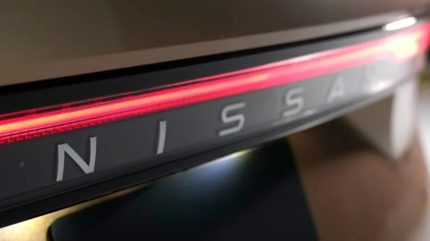
Nissan Motor has reported a net loss of Y221.9bn ($1.4bn) for the first half of fiscal year 2025 (FY25) and confirmed plans to sell its Yokohama headquarters building.
The result for the six months to 30 September 2025 contrasts with a net profit of Y19.2bn in the same period a year earlier.

Discover B2B Marketing That Performs
Combine business intelligence and editorial excellence to reach engaged professionals across 36 leading media platforms.
The company cited weak performance in its core automotive operations and the effect of additional US tariffs on Japanese goods introduced by the Trump administration.
First half sales revenue declined 6.8% year on year to Y5.58trn.
Nissan recorded an operating loss of Y27.6bn, reversing an operating profit of Y32.9bn in the prior-year period.
Global vehicle sales totalled 1.48 million units in the half.
Nissan said its liquidity remained strong at Y3.6trn as of September, including Y2.2trn in gross cash.
Nissan president and CEO Ivan Espinosa said: “Our first-half results reflect the challenges we face, yet they confirm that Nissan is firmly on the path to recovery. The second half will bring its own hurdles, but with focus, discipline, and the actions underway, I am confident we will deliver stronger results.
For the full fiscal year ending March 2026, the company now projects revenue of Y11.7trn, a 6.4% reduction from its previous outlook of Y12.5trn.
It expects to break even at the operating level when excluding the impact of US tariffs; including estimated tariffs, Nissan forecasts an operating loss of Y275bn.
The Japanese automobile manufacturer said its cost-saving measures are progressing, targeting cumulative savings of Y500bn by FY26.
The Yokohama headquarters sale forms part of the company’s strategy to dispose of non-core assets. Under the deal, Nissan will lease the building back for 20 years, allowing it to continue operating there as its head office.
The company said that proceeds will be reinvested to modernise facilities and support future growth under the Re:Nissan programme.
It reiterated aims under Re:Nissan to achieve positive automotive operating profit and free cash flow by fiscal 2026.
The company said it has identified Y200bn in potential variable cost savings. Fixed cost cuts are progressing quickly, with more than Y80bn achieved in the first half.
Nissan said it is on course to exceed Y150bn by year-end and remains confident of surpassing its Y250bn target by fiscal 2026.
It added that six of seven plant site measures have been completed, engineering cost per hour has improved by 12% towards a 20% target, and parts complexity has been materially reduced.
“Balancing optimism with prudent risk management under Re:Nissan, we are accelerating toward the future—prioritising new products, key markets, and breakthrough technologies that will define Nissan’s next chapter,” said Espinosa.






